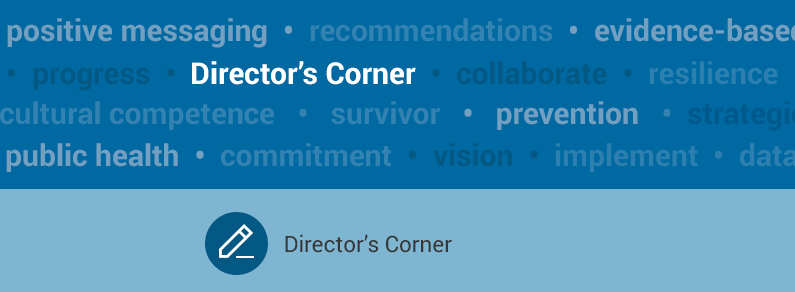Changing the Story
April 07, 2017

I’m a commuter. Twenty-five miles and approximately an hour (two or three when it snows) one way every day for 15 years. I’ve never counted, but I make my way through at least 30 traffic lights on one of the busiest roads in Colorado. It’s cool—I’m used to it and it gives me time to unwind or think or totally zone out. But on a particularly snarled morning in October 2014—when I was taxed and stressed at work, and grappling with the chaos of three kids back in school, my wife starting a new job, and having lost track of my exercise routine—I was anxious, irritable, and sleep-deprived and had an unpleasant moment of clarity: “If I weren’t married, didn’t have kids, and weren’t the primary provider for my family, I’d turn my car around right now, call my boss, and quit my job this morning.” I know this isn’t an uncommon sentiment for many, and it certainly wasn’t the first time I’d thought it, but the overwhelming sense of dread it came with that morning unsettled me to my core.
I’ve worked in suicide prevention for a decade. I co-founded Man Therapy. I know the impact that traditional definitions and constructs of masculinity have on not only suicide rates, but on a whole list of public health issues. Men experience more unintentional injuries and death, have higher rates of liver disease and heart disease, smoke and binge drink more, have higher blood pressure, and are the perpetrators and victims of violence and homicide at higher rates than women—often by a considerable margin. Showing vulnerability is considered an affront to one’s masculinity, and showing emotion beyond anger or aggression is seen as “unmanly.” Men are socialized to believe that asking for help is weak.
Why? In part, I’d argue it’s due to the story we’ve been told for generations about what it means to be a “man.” A man is a provider and protector, is confident and self-reliant, strives to be a leader and to be looked up to, and is driven to achieve personal and professional success. As a man, I’m on board with all of these notions. In fact, they seem like pretty universal human aspirations regardless of one’s gender. The problem is when the desire to achieve them gets snarled in the traffic of depression, anxiety, anger, stress, or suicidal thoughts. Confronting these may require showing vulnerability and asking for help. Unfortunately, the story men have been told also suggests that vulnerability and help-seeking are weak, leaving many men stuck trying to live up to the high expectations of being a “man,” while suffering in silence or numbing the pain with alcohol or other drugs. This part of the story is clearly harmful, so why not change it?
Allowing ourselves to be vulnerable and asking for and accepting help demands a great deal of strength. It’s one of the manliest things we can do. Achieving success and being the best provider, protector, and leader one can be demands being totally dialed in physically, spiritually, and mentally. If depression, anxiety, anger, stress, or suicidal thoughts are impeding being totally dialed in, then action is a must. Every possible means of support should be engaged and every resource available should be used—including calling a crisis center or sitting down on a therapist’s couch. That’s not weakness. That’s stepping up to be the best possible man one can be.
Of course, it took me 42 years and a moment of despair to finally put my butt on a therapist’s couch. And I work in the field, have access to free therapy sessions, and have the full support of my employer, spouse, and colleagues to engage in my mental wellness. Imagine those who are not afforded the same privileges. At the same time, the old story has a lot of power over me and I have to remind myself often about this new story I’m trying tell. That story includes being proud of and vocal about actively working on my mental health, and encouraging other men to do the same. Just like staying active, eating well (relatively), and drinking in moderation (most of the time), maintaining overall mental wellness is a lifelong task that requires hard work, dedication, and sometimes, well, a little help. Now that’s manly!
This piece was originally written for the National Suicide Prevention Lifeline Network Blog and adapted with the permission of the author and the National Suicide Prevention Lifeline.
For more information on suicide among men, we recommend the following SPRC resources:
- Preventing Suicide among Men in the Middle Years: Recommendations for Suicide Prevention Programs: An SPRC publication that helps state and community suicide prevention programs design and implement projects to prevent suicide among men aged 35 to 64
- Men in the Middle Years: A SPARK Talk featuring Jeff Sung, MD
